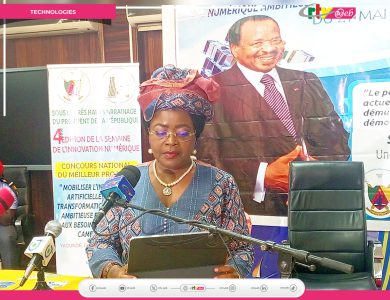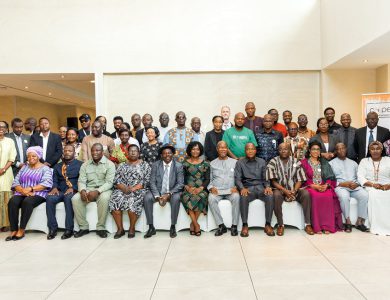The battle against the Human Papiloma Virus ( HPV) has been intensified following a recent training of 1510 tele-operators.
The Ministry of Public Health, through the Expanded Program on Immunization (EPI), in partnership with the Clinton Health Access Initiative (CHAI), organized a two-day training workshop to arm the 1510 call center personnel with vital knowledge about the Human Papilloma virus (HPV).
Held recently at United Hotel Mbankomo, the workshop focused on equipping these frontline communicators with accurate information to tackle misconceptions, address concerns, and build public trust in the ongoing national HPV vaccination campaign.
According to Jean Claude Napani, Head of Communication for the Social Behavior Change unit at the EPI, this initiative is critical to improving vaccine awareness and acceptance.
“Since the introduction of the HPV vaccine, we have faced numerous challenges, primarily due to misinformation. So, we decided to train these tele-operators as the 1510 emergency line is a key communication channel for the Ministry of Public Health,” Napani explained.
The training covered various aspects of HPV, including the importance of the vaccine, the target population, and strategies for effectively communicating with the public.
The more than 10 participants engaged in interactive sessions, learning from experts who shared insights on the latest research and developments in the field. By the end of the workshop, they had compiled a list of Frequently Asked Questions to support the national HPV vaccination campaign.
“I’ve learned so much about HPV, from transmission to symptoms and the importance of vaccination,” said Sylvie Etta, a participant from the Public Health Emergency Operations Coordination Center (CCOUSP/1510). “I’m excited to share this knowledge and encourage more people to get vaccinated.”
It is worth noting that the Clinton Health Access Initiative has long worked in Cameroon to strengthen health systems and improve access to life-saving interventions.
“Since 2007, CHAI has supported Cameroon’s government in implementing interventions aimed at improving the lives and health of Cameroonians. Currently, we are helping increase the uptake of life-saving vaccines for children,” stated Dr. Clarence Mbanga, Vaccines Program Manager at CHAI’s Cameroon office.
Why the HPV Vaccine Matters
HPV, or Human Papillomavirus, is a common virus transmitted through close contact, including skin-to-skin touch.
While most HPV infections are harmless and resolve on their own, some can cause serious health problems, such as warts or even cancers, particularly cervical cancer in women.
Each year, Cameroon records 2,787 new cases of cervical cancer in women, resulting in approximately 1,837 deaths.
“This high mortality rate makes cervical cancer the second most common cancer among women in Cameroon and the third most common among both men and women,” said Dr. Edzoa Brice, Centre Regional Coordinator of EPI.
In 2018, Cameroon ratified the WHO’s global call to reduce cervical cancer cases to fewer than four per 100,000 women by 2030. Vaccination is a cornerstone of this strategy.
“We now have highly effective vaccines like Gardasil, introduced in Cameroon in 2020, which can significantly reduce HPV-related infections and cervical cancer cases,” Dr. Edzoa emphasized.
Progress has been steady. While the 2023 vaccination coverage of 56.1% fell slightly below the national target of 60% for girls and 50% for boys, it represents a marked improvement from previous years: 17% in 2020, 20% in 2021, and 20.3% in 2022.
“The target population was not fully reached in 2023, but it was still our best performance since the HPV vaccine was included in the National Immunization Program,” Dr. Edzoa noted.
A Healthier Tomorrow
With 1510 call center personnel now trained to engage communities, address concerns, and dismantle harmful myths, Cameroon is poised to accelerate its fight against HPV.
This effort is about more than just hitting numbers—it is about saving lives, protecting futures, and ensuring that no child misses the opportunity for a healthier tomorrow.
“The goal is to provide the population with a reliable source of trusted information about HPV and vaccination,” added Dr. Clarence Mbanga.
“Every vaccine administered to boys—often the main carriers—and girls, who are most affected, brings us one step closer to eradicating HPV-related diseases and giving our children the future they deserve.”
Gladys Asu Ngouana











